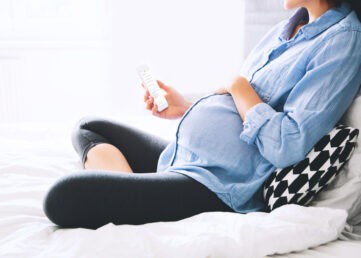What is the best treatment for Depression?

There has been a lot of change and uncertainty recently. Across the world, people’s lives have been turned upside down, and the future remains unclear. If you have been diagnosed with depression, understanding that there is always professional mental health support only a phone call away and knowing it is treatable can make all the difference. If you want to know the best treatment for depression, read on.
This global pandemic has seen an increase in mental health disorders such as depression, but if your feeling low has come as a result of the virus, then it may be low mood rather than depression. Even though it may seem persistent, it’s likely to be short-term as it’s a direct result of an external factor (i.e. COVID-19).
When is it low mood vs depression?
It is worth mentioning that if you feel persistently unhappy and hopeless and have lost interest in things you used to enjoy, it could be something to address. Cognitive Behavioural Therapy is effective for mental health disorders and many emotional problems, so you do not need to have a mental illness to benefit from therapy.
Did you know that globally, more than 264 million people of all ages suffer from depression?
Depression is the leading cause of disability worldwide. When left untreated, it can leave us feeling extremely isolated and completely withdrawn from the world around us and is often the leading cause of suicide. It sadly takes the lives of nearly 800 thousand people each year, and perhaps more astonishing, suicide is the second leading cause of death in 15-29-year-olds. (WHO)
Common symptoms of depression to look out for:
- A persistent feeling of low mood or unhappiness
- A sense of worthlessness and inadequacy with a loss of confidence
- Feelings of guilt, anxiety and irritability
- A loss of energy, general aches and pains and little motivation to do things
- A loss of interest and pleasure in day-to-day activities
- Changes in appetite – either eating less or more
- Sleep disturbance – difficulties getting off to sleep or early morning waking
- Loss of interest in sex and/or reduction in sex drive
Depression can affect people differently, but if you find yourself unable to function daily or withdraw from friends and family, it may be time to get help.
CBT is the treatment of choice for mild to moderate depression. If symptoms of depression are severe and medication is required, then it has a more significant effect if combined with CBT.
Most people’s depression improves with CBT, and 87% fully recover. A feature of depression is hopelessness but do keep in mind that depression is treatable with CBT.
Cognitive Behavioural Therapy is an evidence-based form of structured and goal-oriented psychotherapy. It was initially developed for the treatment of depression, has the most substantial evidence base, and has been successfully adapted for treating a wide range of mood and anxiety issues.
CBT looks at the connection between how you think, how you feel and how you behave and how altering one (through therapy) affects all the others. When we are low or upset, we can fall into patterns of thinking and responding, which can worsen how we feel. CBT works to help us notice and change problematic thinking or behaviour patterns so we can feel better.
If you were already dealing with depression before the COVID-19 pandemic, you might find things particularly difficult now.



